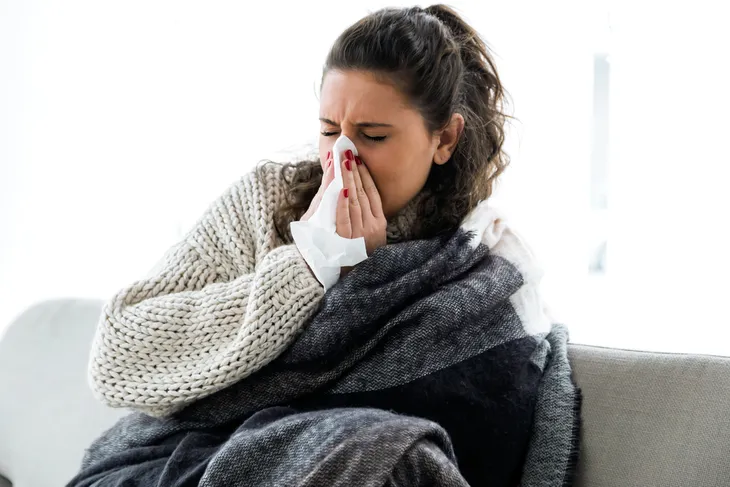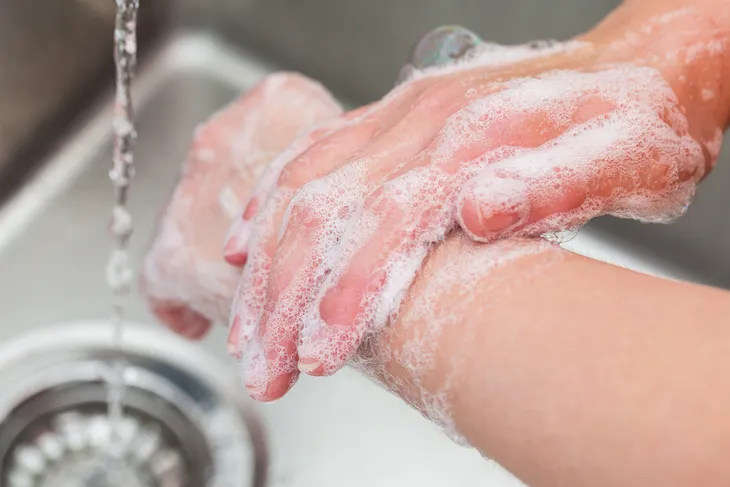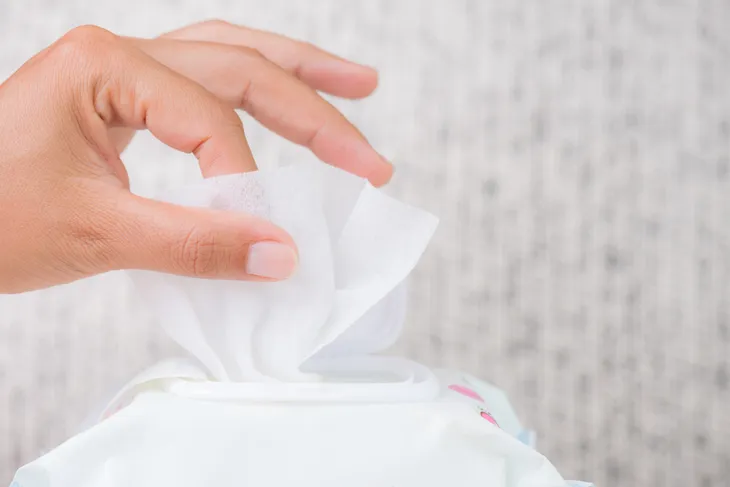It’s the colder season, so you probably just assume you’re going to end up with a cold at some point in the next few months. However, it doesn’t have to be that way. There are plenty of things we can all do to help ward off winter illnesses and avoid getting a cold in the first place! Turns out there are several strategies to try.
While they’re not foolproof, these seven tips you can try at home or in the office (and outside) are worth a shot to avoid being miserable and stuffy for a week or more – or at least will help reduce the amount of time you’re sick.
Blow Away Germs
One of the suggestions from Health.com is interesting – it’s a strategy to avoid letting airborne germs enter you in the first place. Cold viruses enter your system through your nose and mouth, whether you’re touching them (after touching an infected surface) or breathing in particles from an infected person.
The source suggests that if you find yourself near someone that’s sneezing or coughing, you can “gently and slowly breathe out” until you’re a safe distance – which is 6 to 10-feet. This might help ensure you don’t get stuck with an airborne virus.
Wash Your Hands Regularly
Seems like a simple one, but many people don’t follow this advice closely enough. WebMD says you should think like a doctor, who may be exposed to cold and flu viruses multiple times a day (and so can you).
Wash your hands with warm water and soap for at least 20-seconds regularly throughout the day, suggests the source. You can also try carrying hand sanitizer with you if you don’t have regular access to a faucet. Use a paper towel to turn the faucet off, or you could be ending your hygiene ritual by picking up more germs.
Use Antiseptic Wipes
There are many surfaces in an office or home that can harbor cold germs, so one great way to avoid picking them up is by regularly disinfecting the places they most like to hang out. Disinfectant wipes are readily available at most stores, and are usually safe on electronics as long as you follow all the directions (it’s best to unplug devices before cleaning when you can).
Common surfaces that germs love to gather on include computer keyboards, smartphones, remote controls, drawer and door handles, and even car steering wheels and dashboard controls, notes ThisMamaCooks.com. Don’t forget light switches and even your dog’s leash handle, it adds.
Run Away from Viruses
Okay, not literally. However, running and other types of exercise are one way to ward off a cold, as exercise helps to promote a stronger immune system, according to MedicinePlus.gov.
“Physical activity may help flush bacteria out of the lungs and airways. This may reduce your chance of getting a cold, flu, or other illness,” explains the source. The site also explains it can help you avoid more serious health problems such as heart disease. Interestingly, the source admits that no one really knows exactly why or how physical activity can help boost immunity. But if it works for you, who cares?
Consume Antioxidants
Not only have antioxidants been shown to reduce the chance of developing serious illnesses like cancer by protecting cells, they can also help ward off colds and flu, according to LifeScript.com. That means eating lots of fruits and vegetables, whole grains, as well as nuts and seeds, it explains.
The antioxidants in these foods are actually in the form of vitamins A, B6, C, and E, and also contain minerals that help fight off sickness such as copper, iron, selenium, and zinc, it adds. These all have other essential functions in your body, so it’s best to try to include them in your regular diet or consider supplements.
Rest and De-stress
WebMD notes there’s a “deep ‘mind-body’ link at play when it comes to fighting off a cold,” and that being sad, angry or overworked can increase your chance of getting sick. These kinds of emotions can also “slow your immune system just when you need it running at full power to fight the cold virus,” it explains.
The source suggests listening to your body, and if you feel some signs of an illness coming on (like a scratchy throat or fatigue), kick it down a gear and get some rest and all the sleep you can. Take a day off or avoid stressful situations if you can to give your brain and body a chance to fight back.
Drink Enough Water
This is another simple trick to beat colds that you should already be doing. FitDay.com lists five benefits of drinking water in relation to your immune system, noting proper hydration helps all of your bodily functions stay at optimal levels.
The list of benefits of drinking water throughout the day includes flushing toxins through your kidneys, and also by allowing cells to take in nutrients by expelling waste. Water also helps lymph production to circulate white blood cells (that fight infections), and it also helps keep your eyes and mouth clean and moist (which the source says will help repel dust, dirt and germs). The source recommends 8 to 10-glasses a day, but you can consult a doctor or dietician to get an accurate amount based on your needs.










